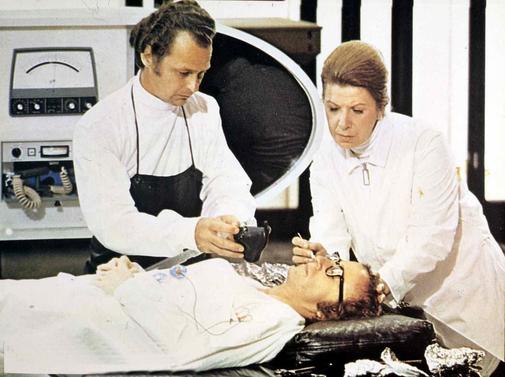Magaret Thatcher and Gregorio Marañón hardly needed to sleep for five hours to keep up a frantic pace of activity. If it is not your case - and on Monday it will cost you to get up early even with the gift time of the time change -, you should not settle. It is likely that they belonged to a minority that specialists call "short sleepers": people who, with a four to six hour night's sleep, are already rested and with their intellectual functions at full capacity. The explanation lies, in large part, in their genes , which make the dream function of the regenerative function fulfilled.
«The authentic short sleepers do not reach 5% of the population », estimates Javier Puertas, head of the Neurophysiology Service and the Sleep Unit at the University Hospital La Ribera, Alzira. The vice president of the Spanish Sleep Society also points out that these minority cases are different from the more common fact of having an "induced sleep debt."
That is what happens by subtracting hours from nighttime rest for work or leisure, which makes us live in a constant social jet-lag. That chronic debt «is being overcome, with the small tips of sleep on the weekend. There are studies that indicate that these compensations, especially in working age, could minimize the effect on cognitive impairment, while others cast doubt on this hypothesis. What they have shown is that chronic sleep deprivation not only has effects on the cognitive level, mood and cardiovascular risk; It also influences diabetes and obesity.
Although these variations or genetic patterns are completely normal, Diego García Borreguero, director of the Sleep Research Institute, in Madrid, explains that in the case of gene carriers related to a reduction in sleep hours, it has been seen, "at least in a subgroup, which does have a slightly lower life expectancy." In the specific case of the ABCC9 gene, its alteration not only makes the sleep time shorter, but also influences the heart cells, which seems to make its carriers more prone to heart attacks and arrhythmias, for example.
The identification and analysis of genes offers clues «to understand the differences between individuals, within which external factors are also contemplated on the needs of sleep that, in addition, can have significant personal, work and social implications, as well as guidance of possible therapies, ”says Alex Iranzo, Neurology consultant and head of the Sleep Unit of the Clinical Hospital of Barcelona.
And, despite the fact that throughout life people who sleep little are also subject to changes in their life habits or associated with age -as happens with adolescents and the elderly-, which influence sleep , « Genetics remains; It's like the ID with specific changes . It has been observed, for example, that three-month-old babies with short-sleeved genes sleep 15 hours compared to those without, sleeping 20 hours ».
But, what clinical importance do they have to know if a person is a carrier of genes that determine the hours they sleep? This specialist is clear: genetics offers a biological justification about sleep. “It helps people know why they can't sleep more hours or what causes them to need more than eight hours, and up to 10 hours for example, of sleep to feel good. Even, sometimes, family sleep patterns can be established ».
At the other extreme, also a minority, would be the "long sleepers", those who need 20% more than the normal average around eight hours of rest , and who also have familiar faces: Albert Einstein or Miguel de Unamuno would be among they. The data provided by García Borreguero reflects that 80% of the population has a normal distribution of sleeping needs: between six and eight hours.
At the moment, a few genes are known that naturally promote a short sleep cycle. One of the last to be discovered is the NPS receptor gene (NPSR1), according to a recent publication in Science Translational Medicine . In the investigation that part of the team of the University of California in San Francisco (UCSF) led by the professor of Neurology Ying-Hui Fu, analyzed a father and a son who only needed to sleep 5.5 and 4.3 hours on average respectively. Then, they corroborated that finding with mice in which they generated that genetic change.
One of the applications of these findings could be the development of drugs to treat insomnia, although Doors warns of the danger of replacing natural sleep or minimizing the harmful consequences of not sleeping: « Attempting to replace sleep with a pill can have an impact ominous ».
Restless legs and narcolepsy
Unlike clarinetist Miles Monroe - played by Woody Allen in 'The Sleeper' - who wakes up as if nothing after 200 years cryogenized. There are diseases directly related to sleep disorders, and they have a genetic basis. Restless legs syndrome is one of the examples. In 2007, the first associated gene was identified, thus clearing up doubts that this pathology had no genetic basis. Another gene is also responsible for narcolepsy, which produces an irresistible desire to sleep or unforeseen sleep attacks.
According to the criteria of The Trust Project
Know more- Science and Health
Health Nobel Prize in Medicine for discoverers of how cells adapt to oxygen availability
HealthCuídatePlus launches the 'Bot Plus' drug dictionary
In the Solar System Saturn surpasses Jupiter and becomes the planet with more moons: 82

